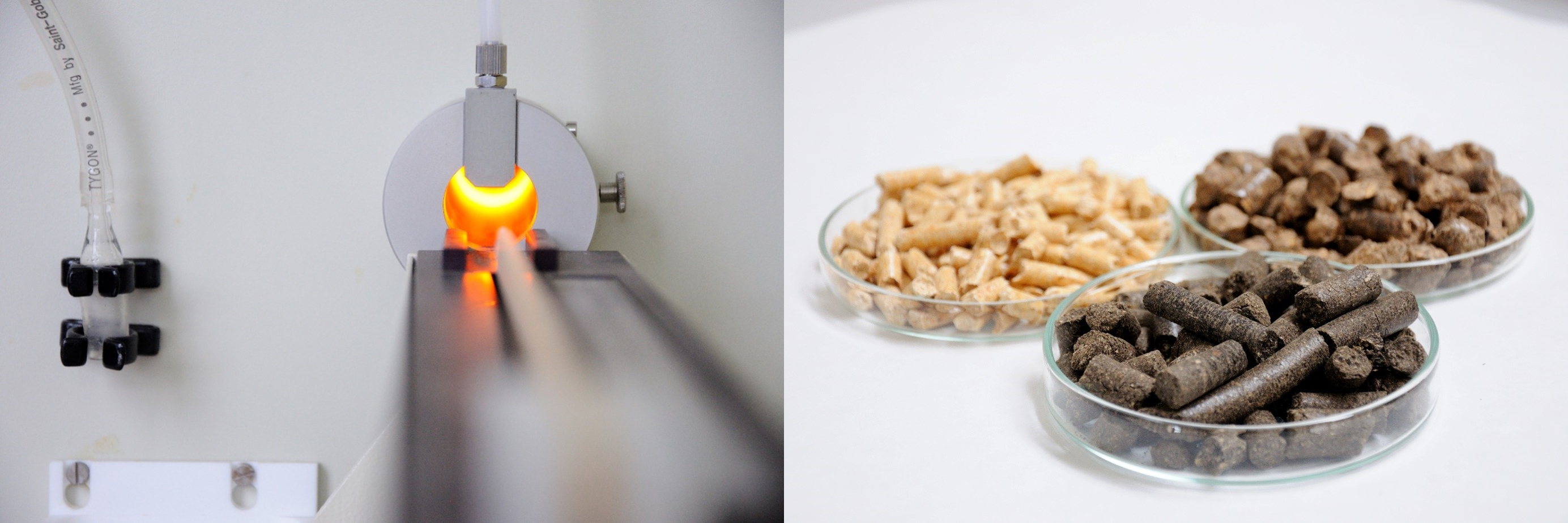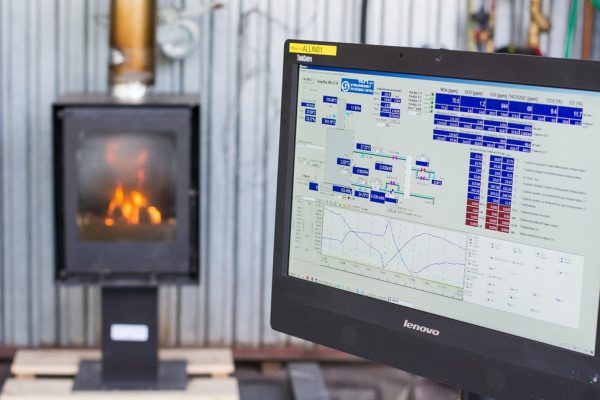Jakub Dohnal from SZÚ about the importance of testing and the benefits of quality certification
Pellet consumers sometimes underestimate the importance of pellet quality misled by lower pellet price. We are glad to have the chance to speak with Jakub Dohnal from Engineering Test Institute (SZÚ) who will tell you about the outcome of buying low-quality pellets and much more.
Dear Jakub, as we know, the Engineering Test Institute (SZÚ) has a wide expertise and portfolio. Please, tell us more about it.
SZÚ as a TIC (testing, inspection and certification) institute providing a wide portfolio of services. Pellet stoves, solid fuel boilers, water heaters, and buffer tanks are strongly connected together, and I am sure that we are able to cover the whole service thanks to our Chemical laboratory and its experience with inspections. Along with my colleagues, we also test heating elements, floor convectors, and ceiling panels. That means the products, without which no heating system is functional. At SZÚ we also test and assess fittings used for heat and water distribution.
Our services also follow various regulations such as LVD (low voltage directive), EMC (electromagnetic compatibilityoise emission directive), which can be applied to compliance assessment ), BED (boilers efficiency directive), PED (pressure equipment directive), GAR (Gas appliances regulation), MD (machinery directive), NED (nof stoves and boilers. Additionally, we are able to assess compliance according to CPR, PPE, Toys and many other standards.
Generally, we can say that SZÚ is able to cover a rather broad portfolio of services. From the very small things like lighters up to medical devices and equipment for nuclear power plants. SZÚ´s services are therefore very comprehensive with the aim of ensuring the safety of the product under assessment.
SZÚ is also a certification body for ENplus®. Tell us about your experience with this scheme?
Thanks to experience with similar certification marks such as Flamme Verte, EPA or KEYMARK, SZÚ as a certification body was able to implement the ENplus® certification mark into its accreditations and thus be a stable partner for clients on the global market.
The ENplus® certification guarantees that the pellets meet strict standards regarding not only the technical parameters of the pellets, but also the production quality control system. A company with ENplus® certification must systematically ensure continuous quality control of the entire production process. The correct setting of the quality management system is checked every year by SZÚ employees as part of annual surveillance inspections. During the ENplus® inspection, we take pellets from the production process and then analyse them in our Accredited laboratory. Thanks to the comprehensive ENplus® certification by SZÚ, the end customer is assured of the highest quality pellets on the market!
We can also say that with the launch of the revised ENplus®, the interest of foreign customers in our services is also increasing. Until 2022, we have worked exclusively with customers from the Czech Republic and Slovakia. Currently, our customer portfolio is expanding to include clients from Romania, Turkey and China, just to give you an example. Our clients are therefore many, but we enjoy their diversity and different approach to production and quality management. Each market is unique and has its own specificities in terms of the raw material used and the production process itself.
In some respects, we are very surprised that even a simplified and thoroughly optimized production process can produce very high-quality pellets. Learning about production processes other than the commonly established ones is what is most interesting about the work of an inspector. Each company is unique and brings us new experience. It helps us grow technically and professionally and do our job more responsibly.

Source: SZÚ
What pellets do you use when testing pellet stoves and how is the testing done?
For testing and the stove compliance assessment process, we only use ENplus® certified pellets, where we have guaranteed quality and durability. We verify their quality in our own Chemical laboratory, which, among other things, also tests samples for the certification of pellets that we issue.
Pellet stoves are rigorously tested for emission and performance parameters. One of the conditions for placing the product on the market is to fulfils the Ecodesign requirements, i.e. strict emission limits and efficiency. Any electrical consumption of the stove is also included in the efficiency. In order to meet and constantly achieve strict limits, it is necessary to use high-quality fuel, and its quality is proven by certification, which also includes regular inspections and verification of pellet quality. The experience of testing pellet stoves shows that the quality of the pellets plays a very important role, the results between certified and non-certified pellets differ by tens of % in efficiency, i.e. that the user consumes tens of % more fuel for the same performance (obtained heat for heating).

Source: SZÚ
So does this mean that the quality of pellets affects the lifetime of pellet stoves and boilers?
Let´s put it this way. The standard EN16510, Part 6, determines Ecodesign requirements and new testing methods as well as stricter requirements for the equipment that must be met. For example, the methodology for measuring of fine dust particles during combustion has changed, i.e. the worse are the pellets, the worse will be the results and higher dust emissions into the environment (from the chimney). The use of uncertified, low-quality pellets, especially in the heating season, will significantly affect the quality of the surrounding air, especially in built-up areas. And this is certainly not pleasing to anybody. Shortly said, by using the wrong fuel, the user degrades the quality of his pellet stove.
And yes, low-quality pellets produce more harmful substances that clog the combustion chamber and flue gas paths. Due to clogging, for example, the stove may not recognize that incomplete combustion is taking place and may incorrectly evaluate the necessary doses of fuel, which, for example, becomes overwhelmed and which threatens dangerous conditions even the backburning into the hopper.
Imperfect combustion results in higher ash amount and staining of the glass, which means that the user is forced to clean the combustion chamber and the glass more often. Imperfect combustion also results in the previously mentioned higher fuel consumption, i.e. the user has to refill the tank more often. Last but not least, the user will pay more for fuel during the heating season than for high-quality pellets.
